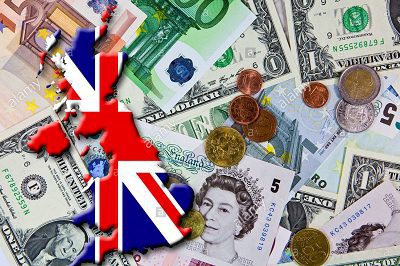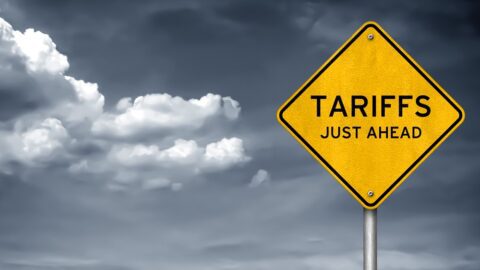One thing is clear about the impact of Brexit on retailers and consumers: nothing is very clear about the impact of Brexit on retailers and consumers. Yes, there have been immediate effects from the June 23 UK vote to leave the European Union (EU), but most of these have been the result of the nosedive that the British pound has taken relative to other world currencies.
So while economists and pundits are full of predictions, many of them dire, it’s important to remember that at this point the effects are more psychological than concrete. The actual shape and scope of the Brexit is unlikely to be known for at least two years, not least because the UK has not even formally filed for its “divorce.” British Prime Minister David Cameron, who has said he will resign in October 2016, will leave the invocation of Article 50, which starts the Brexit process, to his successor.
In the short term, however, the uncertainty engendered by the vote, along with the weakness of Britain’s currency, already have shaken at least one U.S. retailer and sent shivers through many more:
• Staples, already hobbled by its failure to complete a merger with Office Depot, is exploring the possibility of selling off all 107 of its UK stores. The retailer’s European division, which consists of a total of 259 stores, has been struggling: comp store sales dropped 9% in Q1 2016.
• The weaker pound raises UK retailers’ costs of procuring merchandise from outside Britain, potentially shrinking their margins. While some retailers may be able to pass these costs along to the consumer, retailers in the apparel, grocery and home improvement sectors are likely to have the toughest time doing so, according to Brexit Briefings 1: The Macro Impact, a report from Fung Global Retail & Technology.
• Fung Global also noted that in the top tier of U.S. retailers, Walmart (via its Asda subsidiary), Walgreens Boots Alliance and Amazon are the most exposed in the UK. In the rest of the EU, Amazon, Walgreens and Apple are the most exposed.
Less Access To The Enormous European Market
“Generally speaking, Brexit is not good news for the retail industry,” said RetailNext European consultant Jacobo Rey in a June 27 blog. “The European Union’s 500+ million population represents tremendous market opportunity for retail, with free persons and product movement within the Union. The UK represents a €60 billion market in retail fashion alone, the second biggest market of all EU countries in that industry, and the looming impact is sure to be large.”
The impact will be big, but will it be all bad? “In reality no one can anticipate what will happen,” Rey added. “There are no historic precedents over the EU’s 23-year history, so today it is all about assumptions.”
Which UK Consumers Will Take The Biggest Hit?
Among UK consumers, Fung Global Retail & Technology forecasts that for the remainder of 2016 and into 2017, older customers with assets that may lose value in the short term, such as stock market holdings or real estate, are likely to be the hardest hit. Younger shoppers are likely to be more resilient.
“We expect the combination of more insulated younger consumers and caution among older and more affluent consumers to accelerate major trends we have already seen in UK retail,” according to Fung’s Brexit Briefings 2: Retail Winners and Losers. “Namely, the growth of discount channels, especially in grocery; strong growth at Internet pure plays, notably in young fashion; and a struggle for middle-ground brick-and-mortar retailers as customers splinter away to more targeted alternatives.”
A Boom In Luxury Tourism?
For the high end of the UK retail market, the weaker pound may actually provide a short-term boost. The currency’s fall means lower prices for luxury goods, potentially attracting international buyers looking for bargains, according to a Business of Fashion article that quotes Edouard Meylan, CEO of Swiss watchmaker H. Moser & Cie: “I wouldn’t be surprised to see Chinese and Middle Eastern tourists flocking to the UK as their purchasing value has increased. People are ready to travel to get a 5% to 20% discount.”
The article adds that “more visitors to the UK would be a boon for British companies such as Burberry Group Plc and Mulberry Group Plc that have struggled amid slowing luxury demand and terror attacks in Europe. The UK is the world’s sixth-largest market for luxury spending, at €15.5 billion ($17.2 billion). Britain’s gain could come at the expense of retailers in Japan, casinos in Macau and jewelers in Hong Kong.”
Consumer Psychology At Work
For UK consumers, a weaker pound and the possibility of an economic slowdown are likely to lower demand for luxury and big-ticket purchases, at least in the short term. British consumers also may see an advantage in playing a waiting game, according to Yong Wang, Robert H. Freeman Professor of Strategic Marketing and Associate Professor at Ohio University School of Business.
“For UK-made products, consumers may imagine that after the Brexit finally takes place, British manufacturers would have to use aggressive sales techniques, because the market they are selling to will have become smaller,” said Wang in an interview with Retail TouchPoints.
Of course, some consumers may be motivated to buy now, particularly with big-ticket goods that originate in the EU, Wang noted. Currently there are no tariffs on most European-made items, which may not be the case after the Brexit has been negotiated.
For British brands looking to sell outside their country, Brexit may have created a new set of challenges, according to Wang. “Brexit is a public relations challenge for the UK ‘brand’ and everything associated with it,” he said. “There may be a consumer animosity issue playing out. I have students from mainland Europe who say they feel betrayed by Britain voting to leave the EU. That’s a negative that could cast a shadow on a lot of British brands.”
Three Ways To Prepare For Future Brexit Impact
Even though Brexit’s ultimate impact won’t be felt for a while, retailers can (and should) start preparing for a range of eventualities. Kantar Retail’s Brexit’s Impact on the British FMCG Retail Landscape identifies three areas to focus on:
• Data: The European Union has spent extraordinary amounts of time setting rules on personal data privacy, corporate data security, policing of data and other issues related to cloud computing, data sharing and survey work. The types of data that retailers have access to, how they gain access to it, and how they protect it will change.
• Food Labeling and Food Packaging: The EU has had a powerful effect on how retailers label and package goods. These rules will change and UK retailers will need to take advantage of or react to these changes.
• Social and Environmental: Up to now, the environmental rules and social rules governing retail in the UK have largely been shaped by EU rules that have a future deadline well in advance of the present. As these change, retailers will likely be able to argue for different regulations and will have to deal with a different group of legislators.













